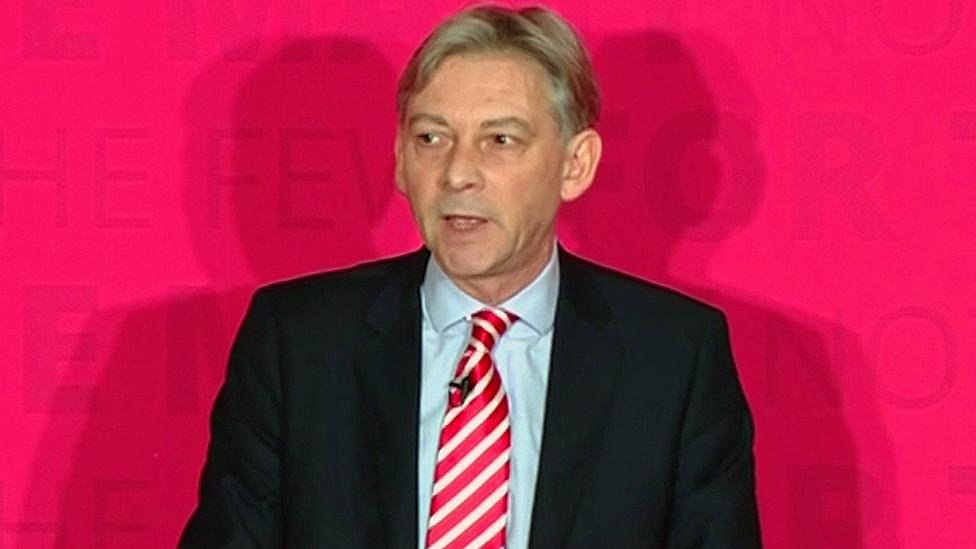Up against it, and ain't that the truth
- Published
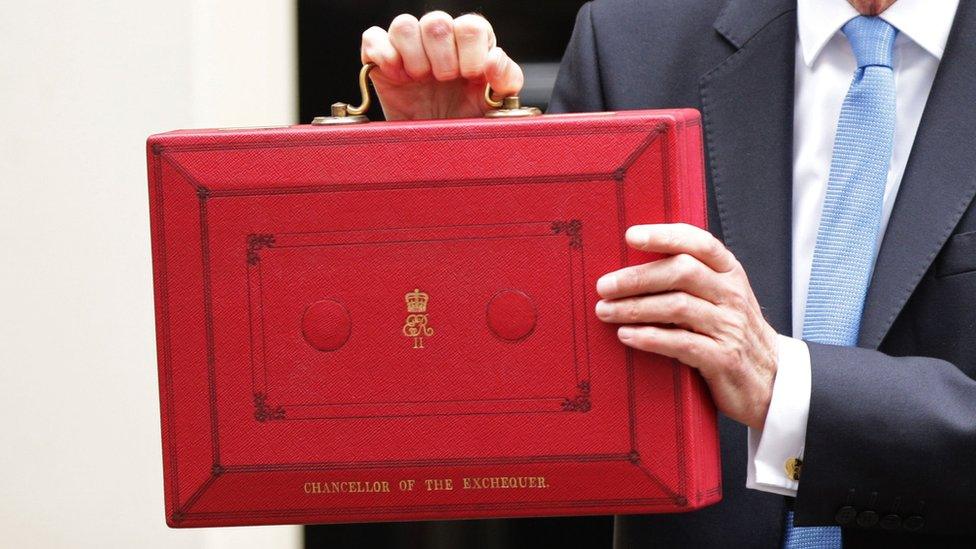
When up against it, politicians customarily essay a range of responses. They may resort to rhetoric, soaring or otherwise. They may rely upon sardonic irony.
If really pushed, they may fall back upon frankness. Yes, they may tell the truth. In his Budget today, Philip Hammond relied upon all three.
Strategy One, oratory. At various points, he seemed on the verge of passion, verging upon emotion. There was talk of Britain's bold new future, of sunny uplands (or some such). But you could just tell his heart wasn't in it: he had seen the Red Book in advance. He knew the figures.
So, Strategy Two, he had a bash at comedy. And, you know, it wasn't at all bad. He had a deft jibe at his occasional (private) tormentor, Michael Gove, by warning that he was about to embark on "long economicky words". (Mr G was guilty of such discourse, at least according to Cabinet colleagues.)
He teased Kezia Dugdale for her jungle adventures, adding to the insult by calling her KEEzia. And he dissed Jeremy Clarkson, with a reference to his erstwhile motoring co-presenters.
On announcing a policy which Mr C apparently dislikes, the Chancellor noted with a wry smile that it wasn't the first time the bold Jeremy had been upstaged by Hammond and May.
OK, maybe you had to be there. But it attracted at the very least a degree of sympathy for a Minister who needs all the help that is going.
Future prospects
Finally, Mr Hammond turned to the last resort, the final refuge. The truth. To be entirely fair, he made no attempt to disguise the troubled nature of the economy at present.
OK, he talked up future prospects. He forecast improvement if we all pulled together and…you can complete the rest. What do you expect him to do? He is in charge of UK finances. It is his job to sound positive, not least for the markets.
And he had some good stories to tell. Of investment in new technology, of innovation and entrepreneurship which he promised to foster through government policies.
But the underlying figures? Dire and gloomy, for the most part. Productivity in the doldrums with a concomitant impact upon growth forecasts.
And Scotland? Controversy on the day - with very substantial conflict to come. The challenge facing Derek Mackay, Scotland's finance secretary, was already significant, not least because his party lacks a Holyrood majority.
That challenge was scarcely lessened today.
Three elements stand out. Public spending, pay and taxation. But, firstly, it is only right to mention other elements of the package for Scotland.
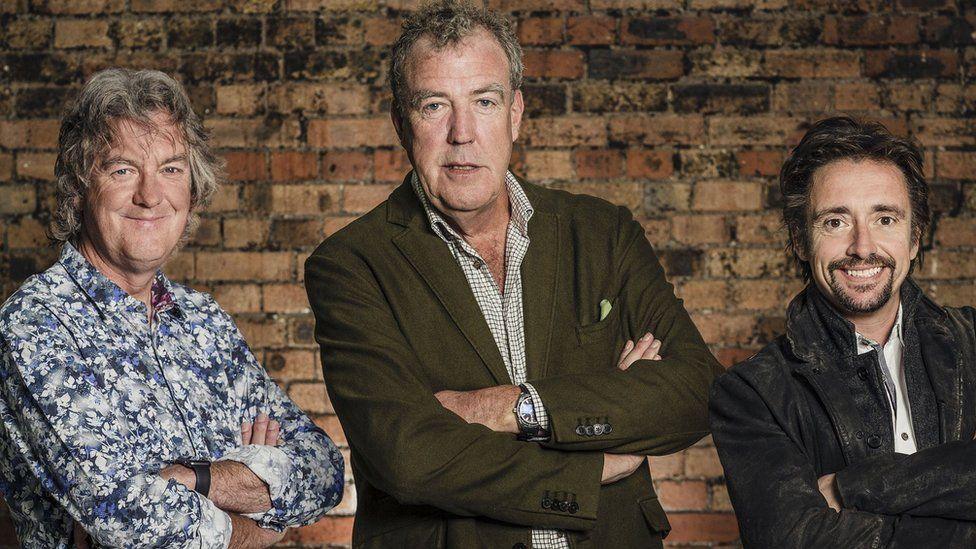
Jeremy Clarkson and his colleagues James May and Richard Hammond got a tongue-in-cheek mention in the Budget speech
Duty on spirits is to be frozen. Tax advantages in the North Sea are to be made transferable, helping smaller, newer firms to take over existing fields from the oil giants.
And VAT is finally to be removed from the police and fire services in Scotland. It was first imposed as a foreseen anomaly when they were taken from local authority control to become Scotland-wide services.
For that one, Mr Hammond gave credit to Scottish Tory MPs. On their behalf, the Scottish Secretary David Mundell delivered an impassioned "hear, hear".
To listen to the Chancellor, you would think that the Scots Tory group at Westminster had the persuasive oratory of Snowball linked to the dogged determination of Boxer. Either way, the Treasury has finally relented.
If Scottish Ministers give one and a half cheers to that one (how late it was, how late) then they are even less enthusiastic about those three big challenges I mentioned earlier.
On spending, Mr Hammond trumpeted a "boost" for Scotland in the shape of £2bn extra. He said he had "delivered for Scotland", linking that to the other announcements.
In response, Derek Mackay said it was a "con". The money was over four years (the Chancellor never disguised that) - and more than half of the dosh was in the form of financial transactions.
'Cash with strings'
These have caused contention in the past. They are, in essence, loan funds available for private projects such as housing, business or agriculture. They fall, thus, to be repaid.
Scottish Ministers readily concede that such funds have proved valuable in the past - although they tend, discreetly, to cite their own deftness in finding useful vehicles. But they say it is cash with strings and it leaves day-to-day spending on the NHS, education and the like facing a real-terms cut.
At which point, Mr Mundell says that the total package going to Scotland will be helpful. At which point…..you get the concept.
Then there is pay. The SG wanted the Chancellor to announce an explicit budget line to cover a lifting of the cap on public sector pay. Derek Mackay pressed for precisely that in his conference speech.
The Chancellor didn't quite go there, at least as far as Mr Mackay is concerned. He signalled there could be a package to assist in funding pay rises for nurses. But there was little detail on pay more generally.
Which leaves Mr Mackay with a quandary. In principle, Scottish Ministers want to lift the pay cap. They want to sanction what they call "fair" pay settlements. But that has always had a caveat attached: it must be affordable. That problem persists.
And then tax. The Chancellor has increased the personal allowance. That is in Westminster's gift for the whole of the UK. Mr Hammond talked of 2.4 million Scots benefiting.
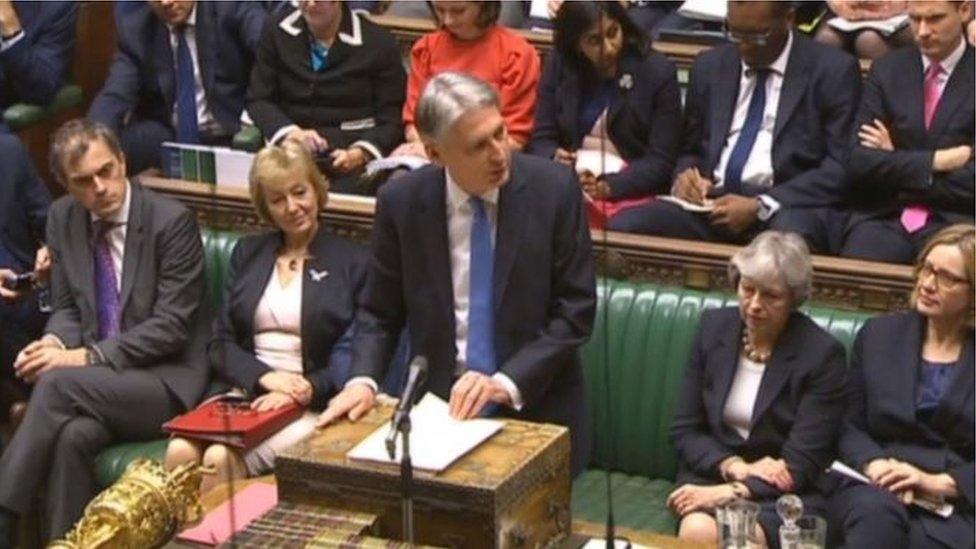
Mr Hammond's Budget poses questions for the Scottish government
However, income tax rates and bands for Scottish-earned income are in Holyrood's hands. Mr Mackay now has to decide what to do. The First Minister has already signalled that the time may now be right to increase taxation in Scotland to fund public services.
Might they pile all that burden on top rate taxpayers? No. Doesn't raise enough because there are too few of them. And they might find ways of avoiding the imposition.
So might they simply hold back the planned new increase in the higher rate threshold, thus levying more cash in Scotland? They could - but they have floated the notion of going further. Of devising new bands and possibly new rates.
That choice was always a tough one: Nicola Sturgeon has made plain she will not simply raise tax for the hell of it. She wants a balance. She knows this could have a real impact on real families.
The Chancellor's decisions make that choice starker still, by lifting the personal allowance and the higher rate threshold. By positing an alternative approach.
An approach which, politically, the Scots Tories will advocate strongly - even as the SNP's rivals on the Left urge tax-funded spending.
- Published18 November 2017
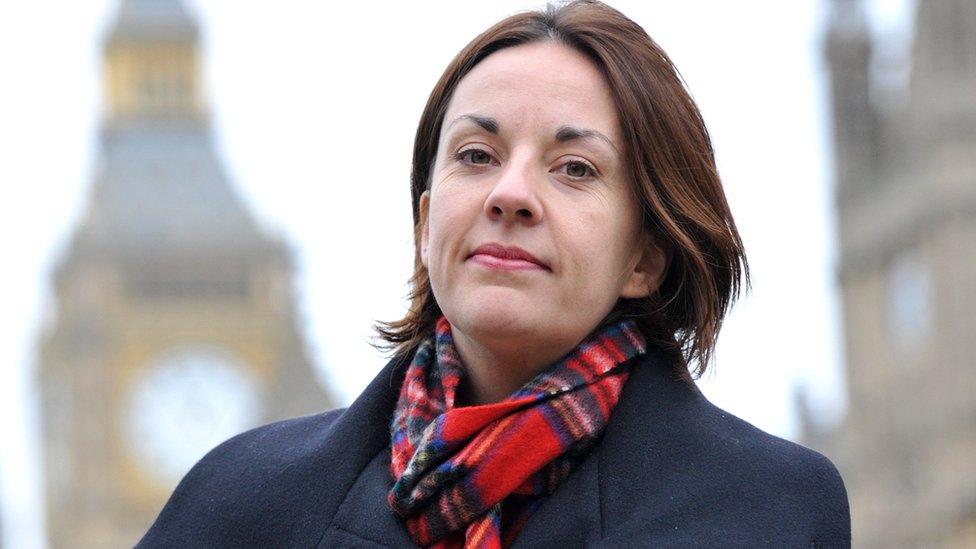
- Published18 November 2017
